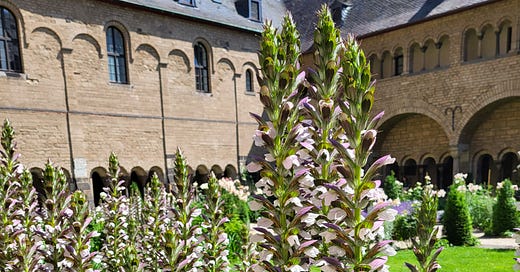If you think about the town where you grew up, it is likely the non-tangibles that make it feel like such a special place. Not just the buildings, the streets, the trees, but the generations of family history, the rhythm of the seasons and the way they intersect with your daily routine. The feeling of “home” comes from much more than four walls and a roof.
For indigenous peoples, these connections to a particular place are deeply embedded in the culture, spirituality, and practice that connect a group of people to their environment.
Robin Kemmerer writes in “Braiding Sweetgrass” about the relationship between the people indigenous to the northern midwestern United States and the wild plant sweetgrass. The people depended on the abundance of sweetgrass, which they used for food, medicine, sleeping mats, and shelter. Sweetgrass depends on the people too; sweetgrass left on its own did not thrive as well as sweetgrass that was harvested seasonally by the people. This reciprocity between the people and the natural environment formed the basis of their spirituality.
The loss of the sweetgrass, although it could not be assigned an economic value, is a real loss. This is an example of what the UN calls “Non-Economic Loss and Damage.”
At a faith community-sponsored side event on Non-Economic Loss and Damage, or NELD, panelists reflected on examples of NELDs in their own contexts.
Elena Cedilo from Lutheran World Federation defined NELDs as irreversible environmental degradation, destruction of biodiversity or loss of ecosystems, or extinction and asked “How should we account for these irreparable losses, what mechanisms can be developed to address the needs of communities affected by them?” within the UNFCCC framework.
NELDs are human rights violations which undermine the full and effective enjoyment of fundamental human rights such as the rights to life, health, housing, food, culture, education, an adequate standard of living, development, work, water and sanitation, self-determination, and a clean, healthy, and sustainable environment.
Cedilo summarized by saying that “Nature is a companion, not a commodity. When an ecosystem collapses, it is a loss of companionship.” She advocated for the adoption of measures that are just, equitable, and sustainable, prioritizing respect for the human rights of all individuals, with emphasis on the most vulnerable sectors of society.
Stephanie Stephens of Vanuatu shared that Vanuatu’s recently released Nationally Determined Contribution (NDC) is an example of an NDC that includes NELD provisions. As an example she talked about the difficulty of a community of people who had lived along the coast for generations that were forced to migrate inland because of climate impacts. Life in the mountains is much different than life along the coast and the move required significant adjustment.
A thorough assessment of Loss and Damage should include this non-economic form of loss and damage. The country’s leadership applied for technical assistance from the Santiago Network to support addressing these needs. It is the first country in making such a request.
One issue that is particularly timely in the United States is the role of NELDs in driving migration. Climate change is projected to drive migration through a combination of economic losses, like destroyed livelihoods, and non-economic losses, like the breakdown of family and community networks. The panelists name climate-related displacement a human rights violation, because it disrupts families and violates the right to choose where and how to live.
As the United States wrestles with the best way to legally process refugees and asylum seekers, it would do well to remember the connections climate change has with driving human displacement. If the US steps away from meaningful climate action, the migration problem will only worsen. Will the US treat arriving migrants and refugees that they are victims of human rights violations?
Cedilo noted that faith-based groups have a unique capacity to facilitate dialogue between government, researchers, and civil society. Faith communities also are specially equipped to recognize the unique and intrinsic value of each species, of ecosystems, and to respond to the psychological toll of climate change impacts. In fact, many faith-based groups are already engaged in this work around the world.
Climate policy which does not consider the effect of climate change on systems, including the earth system, energy system, human systems, will have blindspots. Non-economic Loss and Damage is one way to identify and systemize those needs so that climate policy can address the problem comprehensively. To this end, panelists recommended the following policy items as the UN prepares to move forward to COP30:
Clear and shared definition of NELD
Dedicated funding for NELD
Acknowledge role of faith communities
Establish permanent dialogue mechanisms
Ensure respect for nature
Provide relief for psychological stresshuman rights approach and provide human rights capacity building





